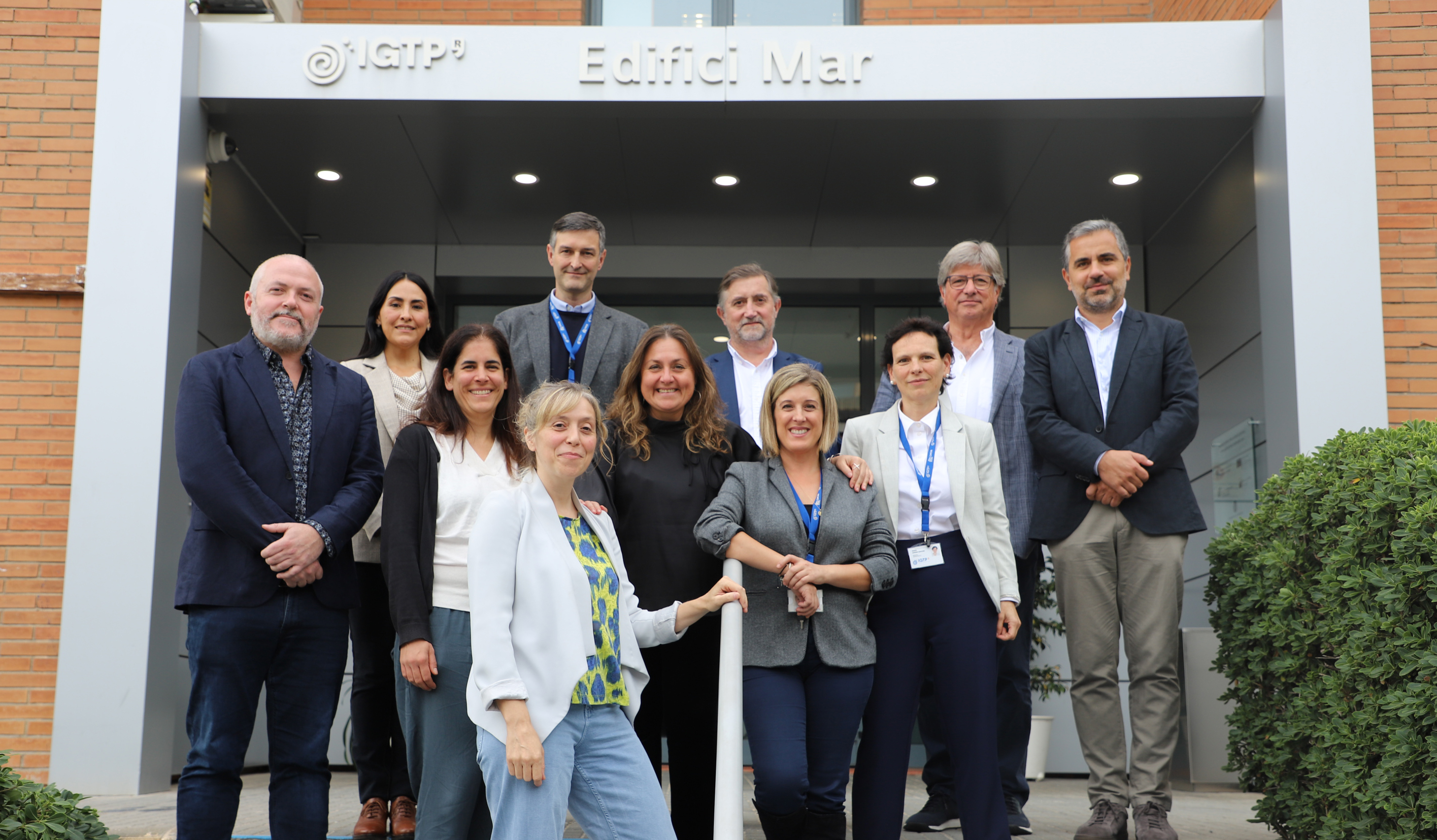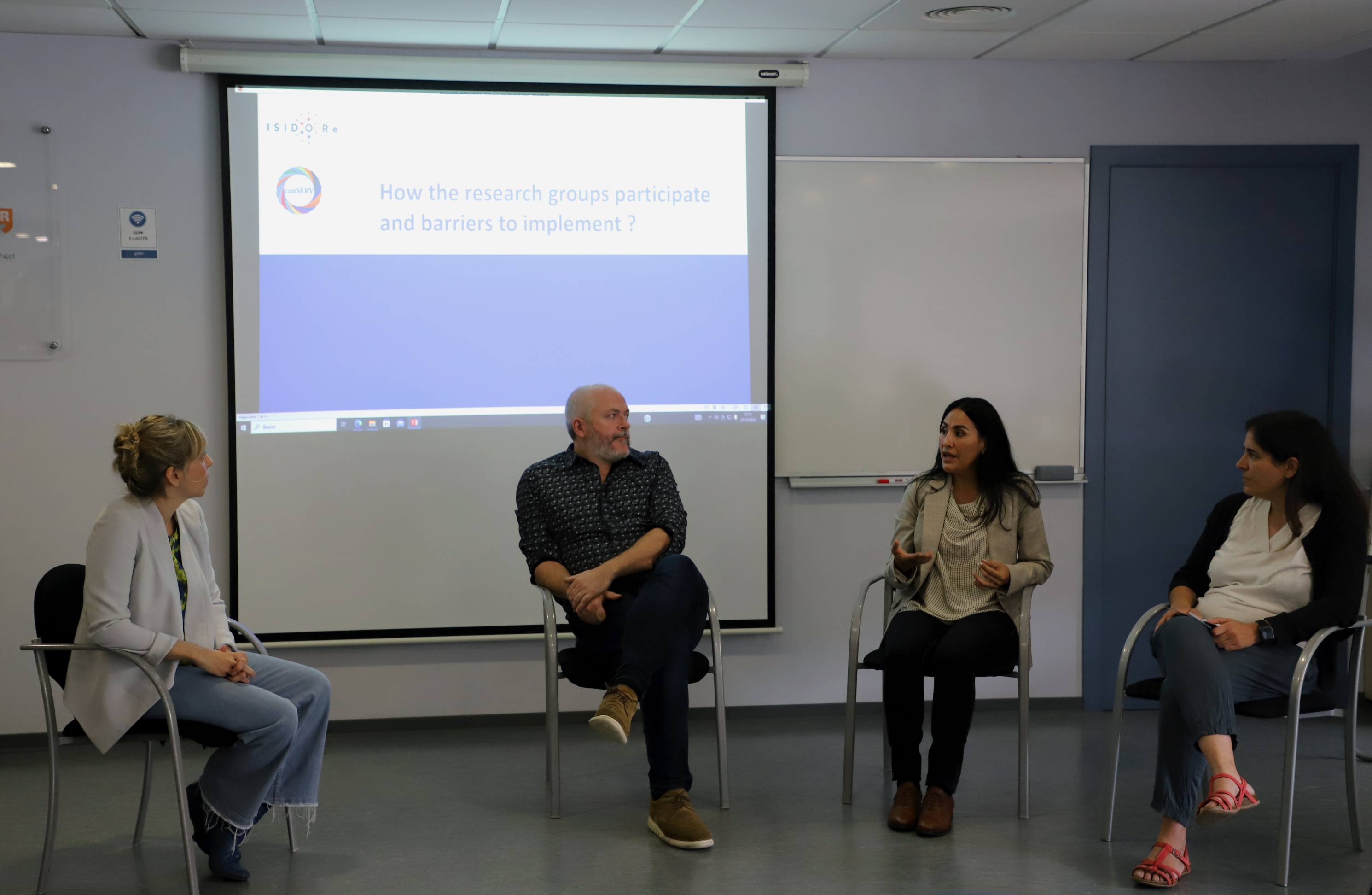IGTP and EATRIS hold a workshop on translational research and innovation

This past Monday, the "Translational research and innovation through EATRIS" workshop was held at Germans Trias i Pujol Research Institute (IGTP). The purpose of this event was to discuss the advances and perspectives of EATRIS both in Spain and in Europe, highlighting the research and innovation activity of the IGTP.
The event highlighted the prominent presence of EATRIS on a European (EATRIS-EU) and Spanish (EATRIS-ES) scale thanks to the different platforms that compose it. The workshop was attended by the scientific directors of EATRIS and IGTP, as well as innovation and project managers from various institutions. It was an opportunity for researchers at the Can Ruti Campus to learn about the opportunities offered by this scientific infrastructure.
The welcome speech was given by Jordi Barretina, director of IGTP, who stressed the significance of the workshop for an institute with a clear focus on translational research. This year's event follows on from the one held last year, establishing itself as an annual event on the institute's agenda.
Following the presentation, David Morrow, senior scientific programme manager at EATRIS and platform coordinator of ATMP-Vaccines, urged attendees to use EATRIS' services and reminded them of its mission: "users, services, institutes, but at the centre of it all are the patients".
The scientific director of EATRIS-ES, Laura García Bermejo, highlighted the progress being made in Spain. In the last year, the Instituto de Salud Carlos III (ISCIII) has increased its investment in EATRIS tenfold and today 32 out of 35 ISCIII institutes are part of EATRIS. "A valuable contribution of the Spanish EATRIS node is that it wants to involve patients", she stated.
The scientific director of EATRIS-ES, Laura García Bermejo, highlighted the progress being made in Spain. In the last year, the Instituto de Salud Carlos III (ISCIII) has increased its investment in EATRIS tenfold and today 32 out of 35 ISCIII institutes are part of EATRIS. "A valuable contribution of the Spanish EATRIS node is that it wants to involve patients", she stated.

The director of the Parc Taulí Research and Innovation Institute (I3PT), Lluís Blanch, chaired a round table with the heads of Innovation and Business Development of Bellvitge Biomedical Research Institute (IDIBELL) and IGTP, Miguel Ángel Souto and Raül Zurita. All these institutes have been recognised as EATRIS Expert Centres in Innovation.
After a short break, another round table was held to discuss the future of Transnational Access (TNA) services and how to make them accessible to researchers, moderated by Julia García, scientific director of IGTP. David Morrow intervened again, accompanied by project managers Patricia Carvajal, from ISIDORe and canSERV, and Sandra Fernández, from International Projects at IGTP, including the aforementioned cancer and infectious disease consortia.

"EATRIS serves as a pivotal platform for IGTP's internationalisation, enhancing our translational research and innovation, and expanding opportunities for our researchers across Europe" Julia García stated in her closing remarks. She added that "IGTP is one of the most actively involved Spanish centres in this network".
About EATRIS
EATRIS is the European infrastructure for translational medicine. We bring together resources and services for research communities to translate scientific discoveries into benefits for patients. EATRIS is what is known as an 'ERIC', which is a non-profit European Research Infrastructure Consortium. This specific legal form is designed to facilitate the joint establishment and operation of research infrastructures of European interest.
'EATRIS' has been the acronym of the European Advanced Translational Research Infrastructure in Medicine since the formation of the organisation in 2007. In November 2013, EATRIS became the first biomedical science infrastructure to receive European Research Infrastructure Consortium status, established by the European Commission.
